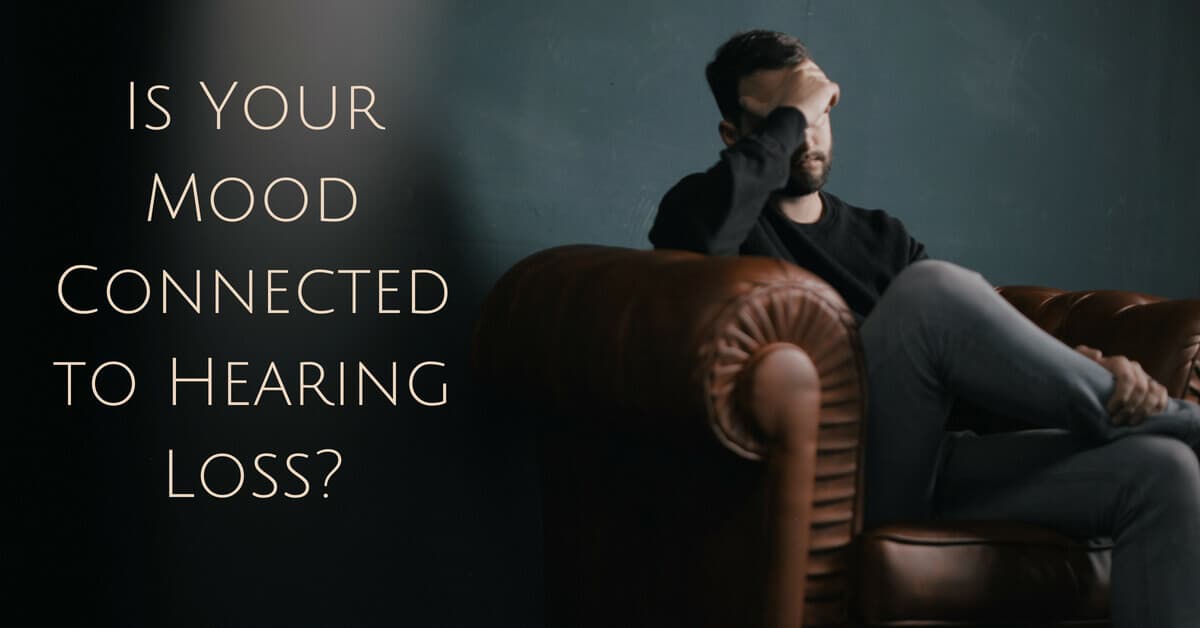There are nearly 30 million people in the United States who are deaf or hard of hearing, according to the National Institute of Deafness and Other Communication Disorders (NIDCD). This includes a broad swath of people of many ages. Some 15% of Americans are experiencing difficulties hearing, and approximately two out of every 1,000 children are born with some form of hearing loss in one or both of their ears. Because there are so many people experiencing hearing loss, it is very important to understand how it is connected to a range of issues, including how people with untreated hearing loss get on physically, mentally, and emotionally.
There have been many studies that show how untreated hearing loss can have dire physical effects: it has been linked to an increase of falls, trips, and other accidents. Hearing is very important to our sense of balance, and helps us situate ourselves in our surroundings. When we have trouble hearing—either because our ear canal is blocked by excessive wax or because there has been damage to the tiny hair cells in our inner ear—it is more difficult for our ear-brain connection to establish where our body is in space and in what direction we are moving, leading to disorientations that can have dangerous consequences.
Hearing Loss and Mental Health
Our hearing is also deeply connected to our cognitive and emotional sensibilities, meaning that our hearing shapes how we feel connected to ourselves and our surroundings. Untreated hearing loss can negatively impact people’s communication with friends, loved ones, and coworkers, in part because it can be difficult for people experiencing hearing loss to disclose to others that they have hearing needs. As a result, people with untreated hearing loss can feel increasingly disconnected, not only because they can’t physically hear as they used to, but because they feel socially isolated. Studies have shown that people with untreated hearing loss are at a greater risk for anxiety and depression.
When left untreated, hearing loss can affect people’s moods in subtle and sometimes drastic ways. Researchers at the University of Gothenburg recently conducted a study on how hearing loss affects people’s personalities and moods, and they published their results in the Journal of Personality. The study was comprised of 400 people who were between 80 and 98 years old. These people were followed for six years, and their physical and mental abilities were closely monitored every two years. These people became less outgoing over time, and researchers theorize that this is because of increasing levels of hearing loss.
Anne Ingeborg Berg has a PhD and is a licensed psychologist, and was one of the lead researchers on the study. In a statement regarding the study, she commented. “To our knowledge, this is the first time a link between hearing and personality changes has been established in longitudinal studies.” She continued by noting, “Surprisingly, we did not find that declining overall health and functional capacity make people less outgoing. But hearing loss directly affects the quality of social situations. If the perceived quality of social interaction goes down, it may eventually affect whether and how we relate to others.”
Another study has investigated the links between hearing loss and mood by focusing on dopamine. Dopamine is regulated by the hypothalamus and regulates mood and behavior, amongst other things. A study conducted by researchers at Washington State University—Vancouver builds upon the understanding that the dopamine transporter that moves dopamine to nerve synopses throughout the body plays a key role in the health of auditory nerve neurons, in particular. Using mice as their study subjects, researchers will focus on how dopamine may alter how these neurons respond to certain sounds and voices.
Healthy Hearing
While these studies demonstrate useful progress in understanding the links between our hearing and our mood, there are several things that you can do to maintain healthy hearing and to practice good mental health. One of the main ways to interrupt the links between untreated hearing loss and the accumulation of negative personality traits, bad moods, or even anxiety and depression is to simply treat the hearing loss in question.
The first step is to visit us at Lifestyle Hearing Solutions for a hearing test and then determining the care path that is best for the person in question—which may include getting fitted for a hearing aid. Including regular exercise and healthy eating into your life will only contribute to your longer-lasting emotional wellbeing.

